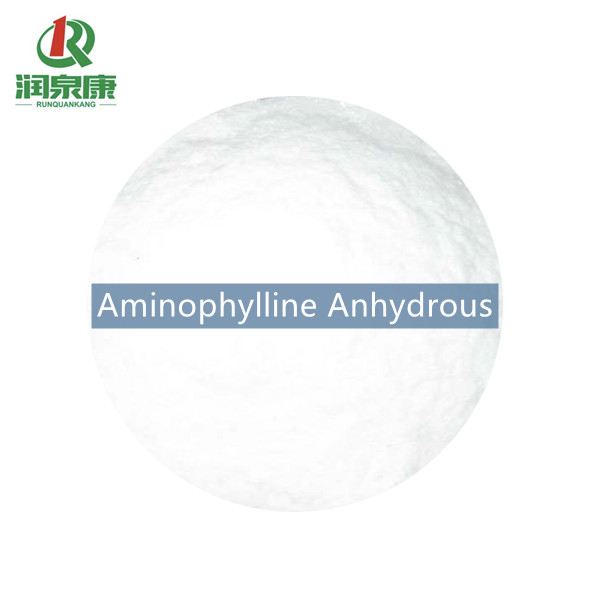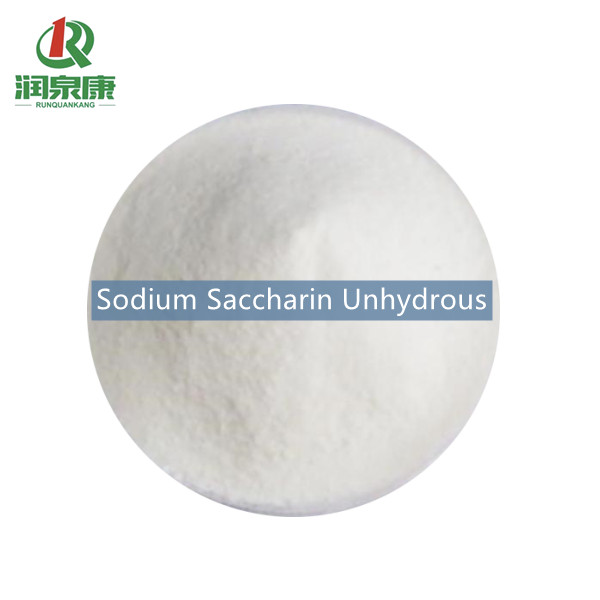
Products
Caffeine Raw Material Sodium Saccharin Dihydrate – Runquankang
Caffeine Raw Material Sodium Saccharin Dihydrate – Runquankang Detail:
Synonyms:
● 1,2-Benzisothiazol-3(2H)-one 1,1-Dioxide Sodium Salt Dihydrate
● 1,2-Benzisothiazolin-3-one 1,1-Dioxide Sodium Salt Dihydrate
● Saccharin Sodium Dihydrate
● Sodium Saccharin Dihydrate
● 1,2-Benzisothiazol-In-3-One, 1,1-Dioxide Sodium Salt Dihydrate
● 1,2-Benzisothiazolin-3-one, 1,1-dioxide, sodium salt, dihydrate
● Saccharin sodium dihydrate
● Sodium saccharin dihydrate
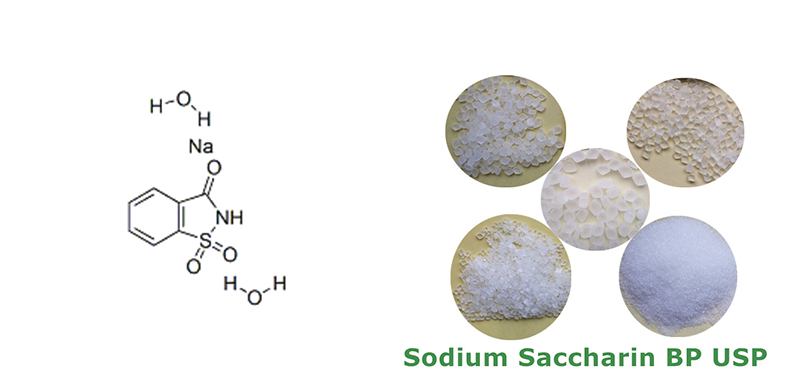
SPECIFICATION:
Appearance: White crystals or a white crystalline powder
Solubility: Freely soluble in water, sparingly soluble in ethanol
Melting Point: 226-230℃
Acidity or alkalinity : Complies with USP/BP
Water: ≤ 15%
Heavy metal≤ 10ppm
Chlorides≤0.01%
o-toluene sulphonamide≤ 10ppm
p-toluene sulphonamide≤ 10ppm
Arsenic≤ 2ppm
Selenium≤ 30ppm
Clarity and colour of solution: Colour is clear
Benzoate& salicylate: No precipitate or violet color appears
Readily carboniazble substances: Absent
Packing: 25kg/bag 25kg/drum 25kg/drum or per customers’requirement
Factory Supply Ability: 2000tons/ year
Lead time: within 5-7 days
Payment Terms: TT LC DP
Sample: 20g sample is for free
Transport:
*sample by express, such as Fedex, DHL, EMS, TNT
*small quantity by air
*big quantity by sea
Mainly export to : India, USA, Russia, Turkey, Africa, Pakistan, Kazakhstan, Ghana, etc.
Pharmaceutical Raw Material API Manufacturer and Supplier in China
Factory Name: Jiangxi Runquankang Biological Technology Co., Ltd.
Factory Address: Industrial Park of Guantian town, Chongyi county, Ganzhou city, Jiangxi Province, China.
Registered Capital: RMB50,000,000.00
Factory Area: 15,700 square meters
Employee: 99
Main Pharmacutical raw material, APIs:
Chloramphenicol, Dl-chloramphenicol, Sodium Saccharin,Heparin Sodium, Bilirubin, Caffeine anhydrous, Theophylline anhydrous , Aminophylline anhydrous.
Packing photos:

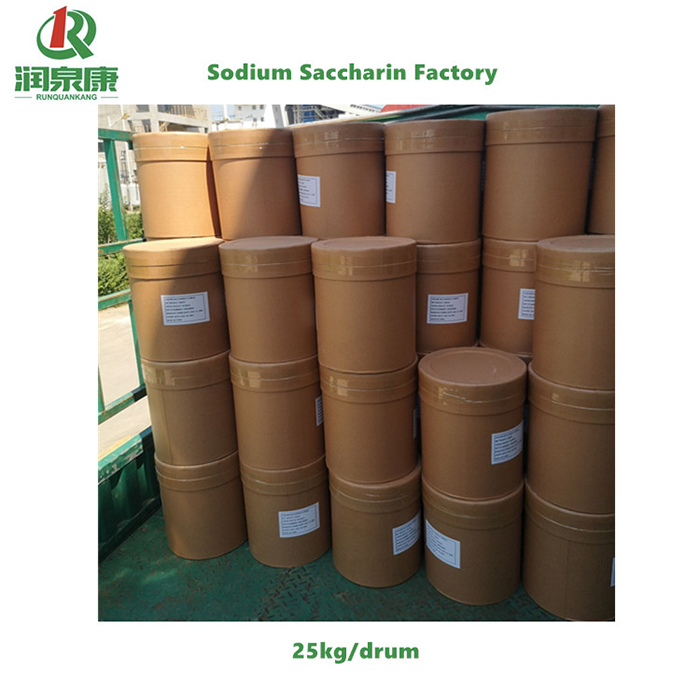
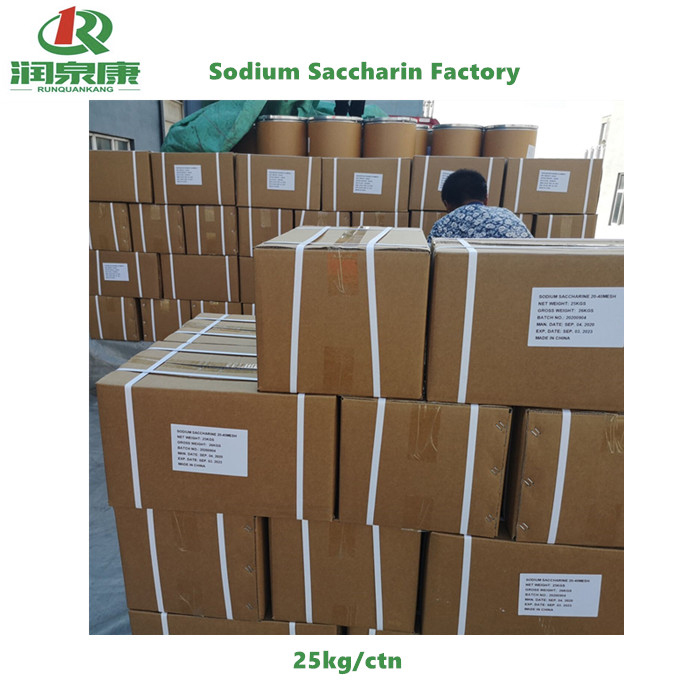
Application:
Sodium saccharin is a commonly used synthetic sweetener in the food industry, and has the longest history of user. The sweetness of saccharin sodium is 300-500 times sweeter than that of sucrose.
Saccharin was discovered by American scientists in 1878 and was quickly accepted by the food industry and consumers. It is not metabolized and absorbed by the human body, and it is stable during various food production processes.
Usage: Mainly used in beverages, flavoring and diagnostic drugs, widely used in electroplating industry and cosmetics.
1. Food: general cold drinks, beverages, jelly, popsicles, pickles, preserves, pastries, preserved fruits, meringues, etc. Used in the food industry and diabetic patients to sweeten their diet, it is a commonly used synthetic sweetener.
2. Feed additives: pig feed, sweeteners, etc.
3. Daily chemical industry: toothpaste, mouthwash, eye drops, etc.
4. Electroplating industry: Electroplating grade sodium saccharin is mainly used for electroplating nickel, which is used as a brightener. Adding a small amount of sodium saccharin can improve the brightness and flexibility of electroplated nickel. The general dosage is 0.1–0.3 grams per liter of potion.
Application field:
1. Food: used in dairy foods, meat foods, baked foods, pasta foods, seasoning foods, etc.
1. Medicine: health food, fillers, medical raw materials, etc.
3. Industrial manufacturing: petroleum industry, manufacturing, agricultural products, storage batteries, precision castings, etc.
4. Tobacco products: It can replace glycerin as a flavoring, antifreeze and moisturizing agent for cut tobacco.
5. Cosmetics: facial cleanser, beauty cream, lotion, shampoo, facial mask, etc.
6. Feed: canned pets, animal feed, aquatic feed, vitamin feed, veterinary drug products, etc.
Product detail pictures:
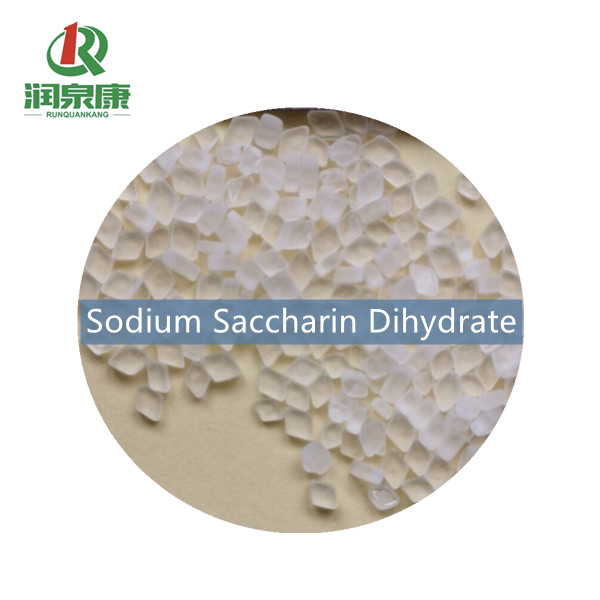

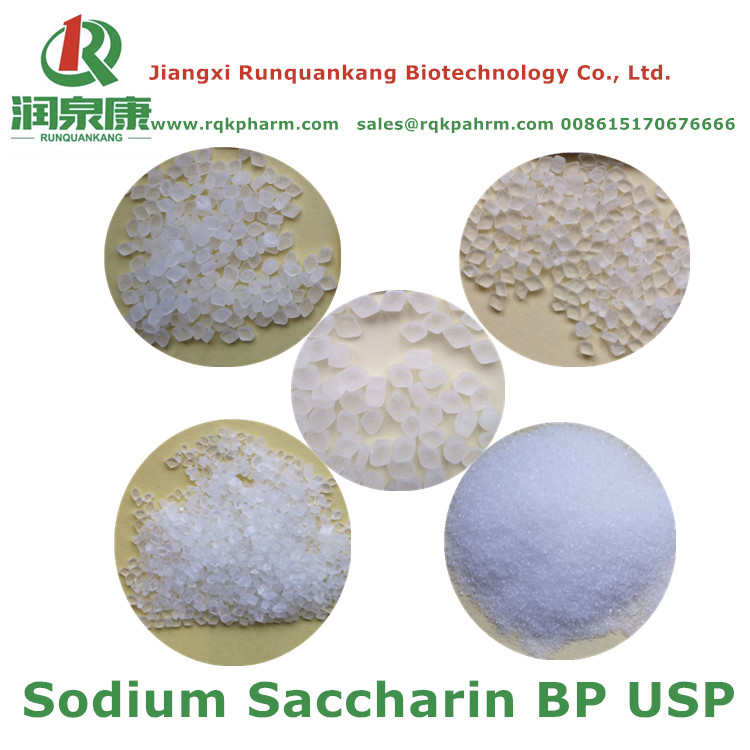
Related Product Guide:
By using a full scientific excellent administration method, great quality and fantastic religion, we get good reputation and occupied this discipline for Caffeine Raw Material Sodium Saccharin Dihydrate – Runquankang , The product will supply to all over the world, such as: Spain, Azerbaijan, Namibia, Our company offers the full range from pre-sales to after-sales service, from product development to audit the use of maintenance, based on strong technical strength, superior product performance, reasonable prices and perfect service, we'll continue to develop, to supply the high-quality goods and services, and promote lasting cooperation with our customers, common development and create a better future.
We are old friends, the company's product quality has been always very good and this time the price is also very cheap.
